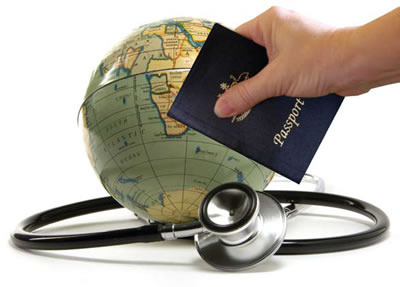Plastic Surgery & Medical Tourism

Medical tourism just doesn’t make a whole lot of sense.
In recent years medical tourism has become an option increasingly available to potential plastic and cosmetic surgery patients. These potential patients often imagine that inexpensive, high-quality surgical care can be obtained by traveling to such countries as India, Mexico, Costa-Rica, Thailand, and the Dominican Republic. Add to that the price-conscious “savvyness” of the internet coupon generation, and the options increase exponentially. The guiding principles often celebrated by proponents of medical and cosmetic surgery tourism are the promotion of patient consumerism and, most notably, cost savings.
In the age of global digitalization, outsourcing of various business practices has become commonplace. Beginning with the export of information technology and call center jobs, outsourcing has now extended its reach to include medicine, surgery, and even plastic surgery. Several developments have facilitated this trend. Prohibitive health care costs at home, increasing denials of insurance claims and decreasing provider reimbursement rates, increasing overall demand for plastic surgery, long waiting times, and lastly, and perhaps most importantly, cost savings, have all contributed.
Medical tourism is marketed on the basis that health care can be off-shored much like the production of computers and cell phones or the provision of professional services such as bookkeeping and accounting. Good surgical care, however, involves more than just the technical act of surgery itself. It requires extensive and careful preoperative consultation, deliberate formulation of reasonable treatment plans, and implementation of proper postoperative care. Yet, such goals are unlikely to be achieved when patients fly to a foreign country, undergo surgery, recuperate oftentimes for less than a week, and return home with no plan for follow-up care. Furthermore, with increasing numbers of reports about patients traveling abroad and returning home with serious complications, the merits of “globalizing” health care must be questioned.
All too often I consult with patients who tell me of lamentable stories of “plastic surgery gone wrong” abroad. The informed consent process, a standard component of patient-physician communication in the United States, involving full disclosure of risks and benefits of treatment, risks and benefits of alternative forms of treatment, and consequences of not undergoing treatment, is virtually non-existent. Most of the time, the patient cannot even recall the name of the surgeon, or even identify him/her in person preoperatively. In all of medicine, but especially in elective plastic surgery, in order for choices to be made in a meaningful and appropriate manner, patients need to receive accurate and comprehensive information. Inadequate communication before surgery and the seemingly non-existent culpability lead some patients to have procedures that in health care settings with higher standards would never be deemed as falling within the professional realm of care.
When considering the cost savings purported to be an attractive feature of medical tourism, one must always consider the added costs of revisional surgery and medical care incurred with the potential for adverse outcomes. These costs increase on the whole when one considers the increasing frequency of surgical complications incurred with surgery in health care settings that do not meet the standard of care. Medical travelers often purchase cosmetic surgery packages without physician consultation and without knowledge of the medical implications to their health and well-being. Medical tourism companies and destination health care facilities, often owned and operated by non-physicians, benefit from maximizing profits without the necessary medical knowledge, legal responsibilities, and unfortunately, moral compunctions either.
All in all, elective plastic surgery is a drastic measure to undergo in order to change your appearance. So if you do it, you should have all the support from family and friends that you can get to help you get through it. Being home in a comfortable and familiar environment is also instrumental in proper healing. Going away to a foreign country to get this done just doesn’t make a whole lot of sense. And that’s the bottom line.